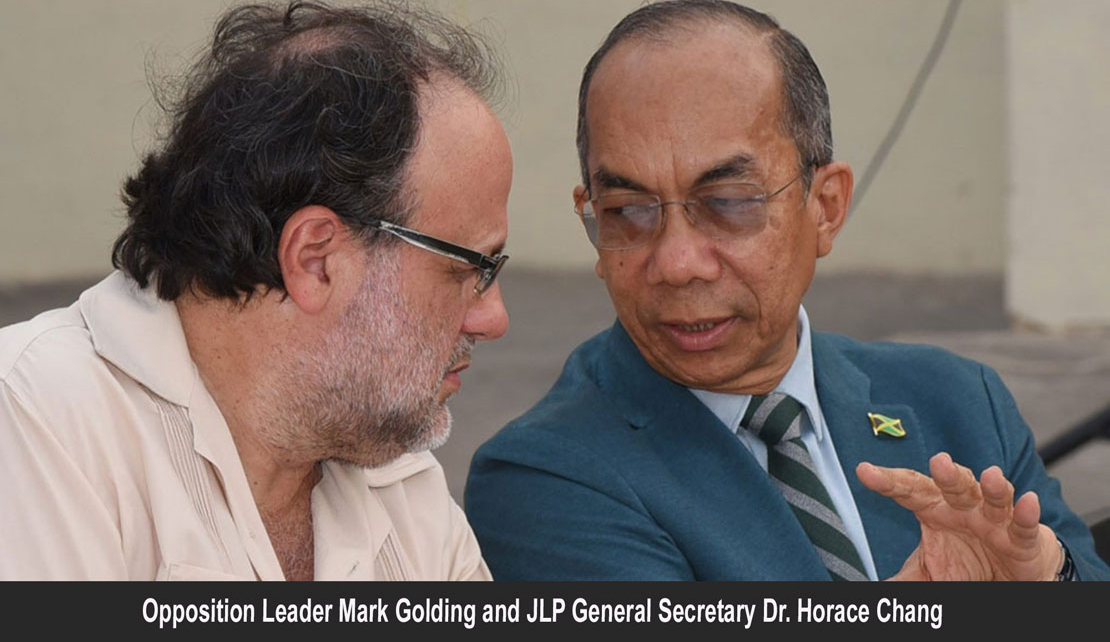JAMAICA | PNP reiterates challenge to tabled reports despite JLP denials

KINGSTON, Jamaica, March 22, 2024 - In a spirited declaration, the People's National Party (PNP) has boldly reiterated its challenge to the current parliamentary protocols concerning the tabling of critical reports from the Integrity Commission and the Auditor General.
This move comes in direct opposition to statements made by Dr. Horace Chang, signaling a deepening rift in the island nation's political landscape over issues of governance and integrity.
At the heart of this controversy lies the Integrity Commission's 2023 annual report, presented to the Jamaican Houses of Parliament. The report, a beacon of accountability, disclosed ongoing investigations into six parliamentarians suspected of illicit enrichment.
Yet, a subsequent ruling by the Speaker of the House mandated that such reports first pass through the scrutinizing eyes of Parliament’s Integrity Commission Oversight Committee before public tabling.
This decision, purportedly based on a legal opinion from the Attorney General—a document shrouded in secrecy despite fervent calls for its disclosure—has ignited a firestorm of criticism from the Opposition.
The plot thickens with the introduction of the Auditor General’s performance audit reports, themselves victims of procedural purgatory.
Submitted to Parliament in January, these reports have languished, untabled, casting a shadow over the legislative body's commitment to timely and transparent governance.
"The Speaker’s deviation from the established protocol hinders the timely dissemination of crucial information vital for transparent governance," lamented the PNP in a pointed critique of the current state of affairs.
The Opposition's stance is clear: the procedural hurdles introduced by the Speaker's rulings not only frustrate the immediate tabling of investigative reports but also erode the foundational principles of good governance.
Amidst this contentious debate, Dr. Horace Chang, General Secretary of the Jamaica Labour Party, has raised his voice in defense of the established procedures, asserting that as of March 22, there are no outstanding reports from either the Integrity Commission or the Auditor General awaiting tabling in Parliament.
This assertion directly challenges the PNP's narrative, suggesting a divergence in perspectives that transcends procedural disagreements to touch on the integrity of Jamaica's democratic process itself.
As the PNP vows to champion the cause of transparency and accountability, calling upon the Speaker to realign with the principles of democracy, the story unfolding in Kingston is more than a tale of political rivalry.
The People's National Party's bold critique of the Speaker's handling of the Integrity Commission and Auditor General's reports is not merely a procedural quibble but a clarion call for an unwavering commitment to transparency and accountability at all levels of government.
In the midst of these unfolding events, Dr. Horace Chang's counter-narrative presents a different perspective, aiming to reassure the public and stakeholders of the procedural integrity of Jamaica's parliamentary system.
Chang's assertion that there are no outstanding reports awaiting tabling challenges the Opposition's claims, framing the debate as one of misunderstanding rather than malpractice.
The Opposition's vow to amend laws to safeguard the immediate tabling of such reports upon delivery to Parliament, should they come to power, speaks to a vision of governance that prioritizes transparency as the linchpin of democratic accountability.
The unfolding drama in Kingston, punctuated by calls for action from the People's National Party and counterpoints from Dr. Horace Chang, serves as a microcosm of the challenges facing democracies worldwide.
In conclusion, the dialogue surrounding the tabling of reports from Jamaica's Integrity Commission and Auditor General is more than a local political skirmish; it is a reflection of the universal quest for democratic integrity.
As stakeholders on all sides of the debate continue to voice their perspectives, the ultimate goal remains clear: to foster a governance landscape where transparency and accountability are not just ideals, but realities that shape the fabric of democratic life in Jamaica and beyond.
-30-
